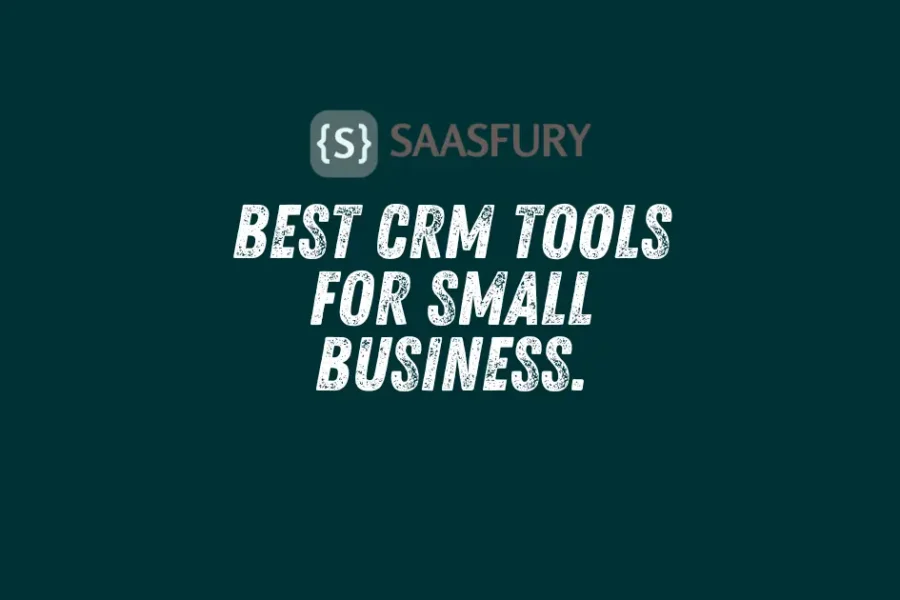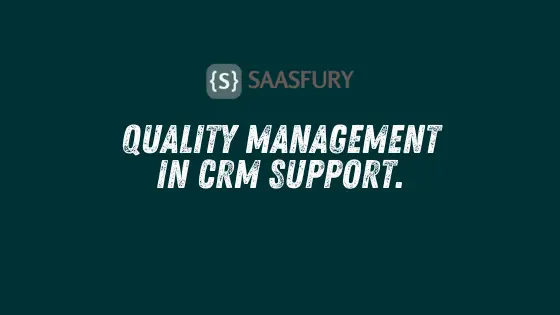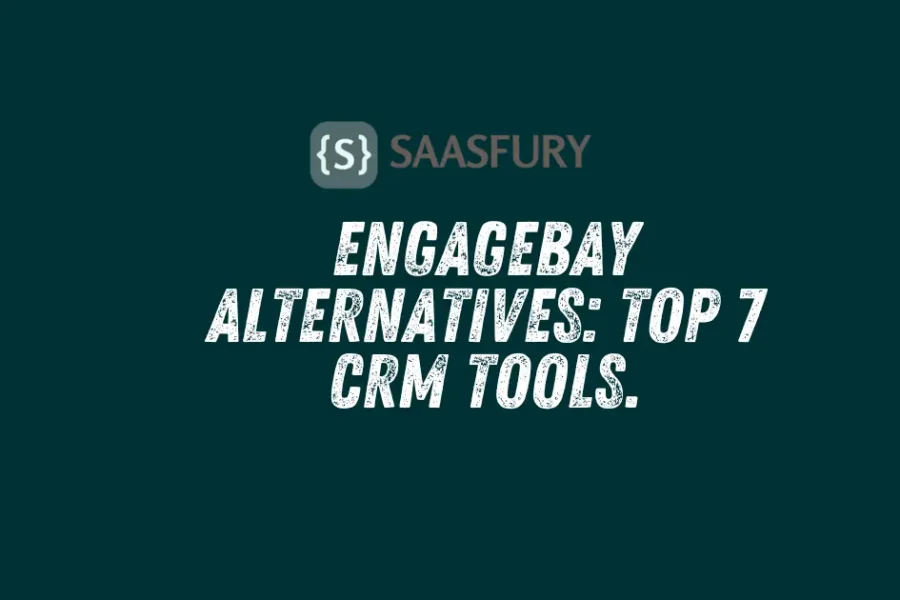Benefits of CRM software enhances customer relationships and boosts sales efficiency. It streamlines communication and automates repetitive tasks, saving time.
Customer Relationship Management (CRM) software is essential for businesses of all sizes. It centralizes customer data, making it easily accessible and actionable. This software improves customer interactions by providing insights into customer behaviors and preferences. CRM tools automate routine tasks, freeing up time for more strategic activities.
They also enhance collaboration among team members, ensuring everyone has access to the same up-to-date information. Effective use of CRM software leads to better customer service, increased sales, and improved customer retention. Businesses that invest in CRM systems can expect more streamlined operations and a stronger connection with their clientele.
Table of Contents
Introduction To CRM Software
CRM software is a game-changer for businesses. It helps manage customer relationships. This tool improves customer interactions and boosts sales. Let’s dive into its benefits.
Definition And Purpose
CRM stands for Customer Relationship Management. Its main purpose is to enhance customer relations. CRM software stores customer data. It helps track interactions and sales. It also assists in managing support services.
Businesses use CRM software to streamline processes. It centralizes data for easy access. Teams can collaborate better with this tool. It improves efficiency and customer satisfaction.

Historical Background
The concept of CRM started in the late 1980s. Early systems were simple databases. They stored customer information. These systems evolved quickly.
In the 1990s, CRM software became more advanced. It included features like sales force automation. The internet boom further transformed CRM. Cloud-based CRM systems emerged in the 2000s.
Today, CRM software is highly sophisticated. It uses AI and machine learning. These advancements make CRM a vital tool for businesses.
Enhanced Customer Relationships
Customer Relationship Management (CRM) software offers many benefits. One of the most important is enhanced customer relationships. CRM software helps businesses understand and cater to their customers better. This section explores how CRM software can improve these relationships.
Personalized Interactions
CRM software allows businesses to create personalized interactions with customers. By collecting and analyzing customer data, businesses can tailor their communications. This means sending relevant offers and messages based on customer preferences.
Here are some ways to achieve personalized interactions:
- Using customers’ names in emails and messages.
- Offering product recommendations based on purchase history.
- Scheduling follow-ups at convenient times for the customer.
Improved Customer Retention
Customer retention is crucial for any business. CRM software helps in improved customer retention by keeping track of customer interactions. This ensures that no customer is forgotten or ignored.
Features that aid in customer retention:
- Automated reminders for follow-ups.
- Customer feedback collection and analysis.
- Loyalty programs and rewards based on customer activity.
| Feature | Benefit |
|---|---|
| Automated Reminders | Ensures timely follow-ups |
| Feedback Collection | Improves services based on customer input |
| Loyalty Programs | Encourages repeat business |
CRM software is essential for maintaining strong customer relationships. It helps businesses interact personally and retain customers effectively.
Streamlined Communication
Customer Relationship Management (CRM) software transforms how businesses interact with clients. Streamlined communication is a key benefit. It ensures all team members are on the same page. This leads to better service and increased customer satisfaction.
Centralized Information
CRM software stores all customer data in one place. This means team members can access centralized information quickly. No more searching through emails or files. Everything you need is in the CRM system.
| Centralized Information Benefits |
|---|
| Quick access to customer history |
| Consistent data updates |
| Better team collaboration |
| Reduced data duplication |
Efficient Follow-ups
CRM software helps manage customer follow-ups efficiently. Set reminders and notifications for each client interaction. This ensures no opportunity slips through the cracks.
- Automated follow-up reminders
- Track past interactions
- Personalized communication
By keeping follow-ups timely, businesses build stronger relationships. Efficient follow-ups increase customer loyalty and trust.
Sales And Revenue Boost
Customer Relationship Management (CRM) software is a powerful tool for businesses. It helps in managing customer data and interactions. One of the main benefits of CRM software is its ability to boost sales and revenue. By leveraging CRM tools, companies can streamline their sales processes, forecast revenue accurately, and ultimately increase their profits.
Sales Tracking
Sales tracking is a critical feature of CRM software. It allows sales teams to monitor their performance. With CRM, sales representatives can track their leads and follow up efficiently. This ensures no potential customer is overlooked.
CRM systems provide detailed reports on sales activities. These reports include data on customer interactions, sales calls, and emails. This information helps in identifying successful strategies and areas needing improvement.
| Sales Activity | Details Tracked |
|---|---|
| Lead Management | Lead source, contact information, interaction history |
| Follow-ups | Dates, communication methods, responses |
| Deals | Stage, value, expected close date |
Revenue Forecasting
Revenue forecasting is another significant benefit of CRM software. Accurate revenue forecasting helps in planning and decision-making. CRM tools analyze past sales data and trends.
This analysis predicts future sales and revenue. Businesses can adjust their strategies based on these predictions. This helps in setting realistic goals and budgets.
- Analyze past sales data
- Identify trends and patterns
- Predict future sales and revenue
- Set realistic goals and budgets
By using CRM software for revenue forecasting, businesses can stay ahead of the competition. They can make informed decisions and maximize their profits.
Improved Data Management
Improved data management is a key benefit of CRM software. It helps businesses organize, access, and utilize data efficiently. This leads to better customer service and informed decision-making.
Data Organization
CRM software offers robust data organization features. It collects customer information in one place. This makes it easy to access and update.
Additionally, you can categorize data based on various criteria. For example, you can sort customers by purchase history or interaction frequency. This allows for quick searches and targeted actions.
Here’s a simple table to illustrate data organization:
| Customer Name | Purchase History | Last Interaction |
|---|---|---|
| John Doe | 5 Orders | 01/15/2023 |
| Jane Smith | 3 Orders | 02/10/2023 |
Informed Decision Making
CRM software aids in informed decision making. It offers detailed reports and analytics. These insights help you understand customer behavior and trends.
For instance, you can see which products are most popular. You can also track customer satisfaction levels. This data allows you to make strategic business decisions.
Consider these benefits:
- Identify top-performing products
- Monitor customer satisfaction
- Optimize marketing strategies
Using CRM software makes your decisions data-driven and effective.
Marketing Automation
Marketing automation through CRM software streamlines your marketing tasks. It helps manage campaigns, track performance, and engage customers effectively. This automation saves time and ensures your messages reach the right audience.
Targeted Campaigns
CRM software helps create targeted campaigns. It uses customer data to segment your audience. You can send personalized messages to different groups. This ensures your marketing efforts are more effective.
Targeted campaigns lead to higher engagement. You can track which messages work best. This allows you to refine your strategy and improve results.
Performance Analytics
CRM software offers performance analytics for your marketing campaigns. You can monitor key metrics like open rates, click-through rates, and conversions.
Here’s a simple table to show how performance analytics can help:
| Metric | Description |
|---|---|
| Open Rate | Percentage of emails opened |
| Click-Through Rate | Percentage of clicks on links |
| Conversions | Number of completed desired actions |
With these insights, you can adjust your strategy. You can focus on what works and improve what doesn’t. This makes your marketing efforts more efficient and effective.
Collaboration And Team Efficiency
CRM software is a powerful tool to boost collaboration and team efficiency. It helps teams work together seamlessly, ensuring everyone stays on the same page. Here are some key features of CRM that enhance team collaboration and efficiency.
Shared Access
With CRM software, teams have shared access to important customer data. This means all team members can view and update information in real-time.
- Centralized database of customer information.
- Real-time updates and changes visible to all users.
- Easy access to customer history and interactions.
This shared access reduces confusion and ensures everyone has the latest information.
Task Management
CRM software includes robust task management features. Teams can assign, track, and complete tasks efficiently.
| Feature | Benefit |
|---|---|
| Task Assignments | Assign tasks to specific team members easily. |
| Deadlines | Set and track deadlines for every task. |
| Progress Tracking | Monitor the progress of tasks in real-time. |
Effective task management ensures that nothing falls through the cracks. It helps teams work together efficiently, completing projects on time.
Customization And Scalability
Customer Relationship Management (CRM) software offers immense benefits. Two key advantages are Customization and Scalability. These features allow businesses to tailor the software to their needs and grow without limits.
Tailored Solutions
CRM software can be customized to meet specific business needs. Companies can add or remove features as required. This flexibility ensures the software fits perfectly into the existing workflow.
Customization options include:
- Custom Fields
- Personalized Dashboards
- Automated Tasks
- Custom Reports
Each business can create a unique CRM experience. This makes it easier to track important data.
Growth Adaptability
CRM software scales with your business. It can handle more data and users as your company grows. This adaptability ensures the software remains useful over time.
Benefits of scalability include:
| Feature | Benefit |
|---|---|
| User Management | Add new users easily |
| Data Storage | Handle more customer data |
| Performance | Maintain speed and efficiency |
| Integration | Connect with other tools |
This scalability ensures that CRM software grows with your business. No need to switch systems as your company expands.
Cost And Time Savings
CRM software brings many benefits to businesses. One of the main benefits is cost and time savings. CRM software optimizes business processes, leading to significant savings.
Reduced Operational Costs
CRM software can lower operational costs. It centralizes customer information, removing the need for multiple systems. Businesses save on software licensing and maintenance costs.
With CRM, fewer mistakes occur. This reduces the need for costly corrections. Customer service improves, leading to higher customer retention. High retention means less spending on customer acquisition.
| Traditional System | With CRM Software |
|---|---|
| Multiple software licenses | Single CRM license |
| High maintenance costs | Lower maintenance costs |
| Frequent errors | Fewer errors |
Time Efficiency
CRM software saves time by automating tasks. Sales teams spend less time on data entry. They can focus on selling instead. Automated workflows speed up processes.
Quick access to customer information is another benefit. Teams do not waste time searching for data. This ensures faster response times to customer inquiries.
- Automated task management
- Quick access to data
- Faster response times
CRM software integrates with other business tools. This eliminates the need for manual data transfer. Integration further enhances time efficiency.
Overall, CRM software streamlines operations. Businesses save time and reduce costs. This leads to increased profitability and growth.
Frequently Asked Questions
What Is Crm Software Used For?
CRM software is used for managing customer relationships. It helps businesses track interactions, streamline processes, and improve customer satisfaction.
How Does Crm Software Improve Sales?
CRM software improves sales by organizing customer data, tracking leads, and automating follow-ups. It provides valuable insights to close deals faster.
Can Crm Software Enhance Customer Service?
Yes, CRM software enhances customer service by providing a centralized database. It ensures quick access to customer information, leading to faster issue resolution.
Is Crm Software Beneficial For Small Businesses?
Absolutely, CRM software is beneficial for small businesses. It streamlines operations, improves customer interactions, and helps in scaling growth effectively.
Conclusion
CRM software offers numerous benefits, including improved customer relationships and streamlined processes. Businesses can boost efficiency and enhance customer satisfaction. Implementing CRM solutions can drive growth and profitability. Leveraging these tools ensures better data management and communication. Embrace CRM software to stay competitive and foster lasting customer loyalty.








Leave a Comment